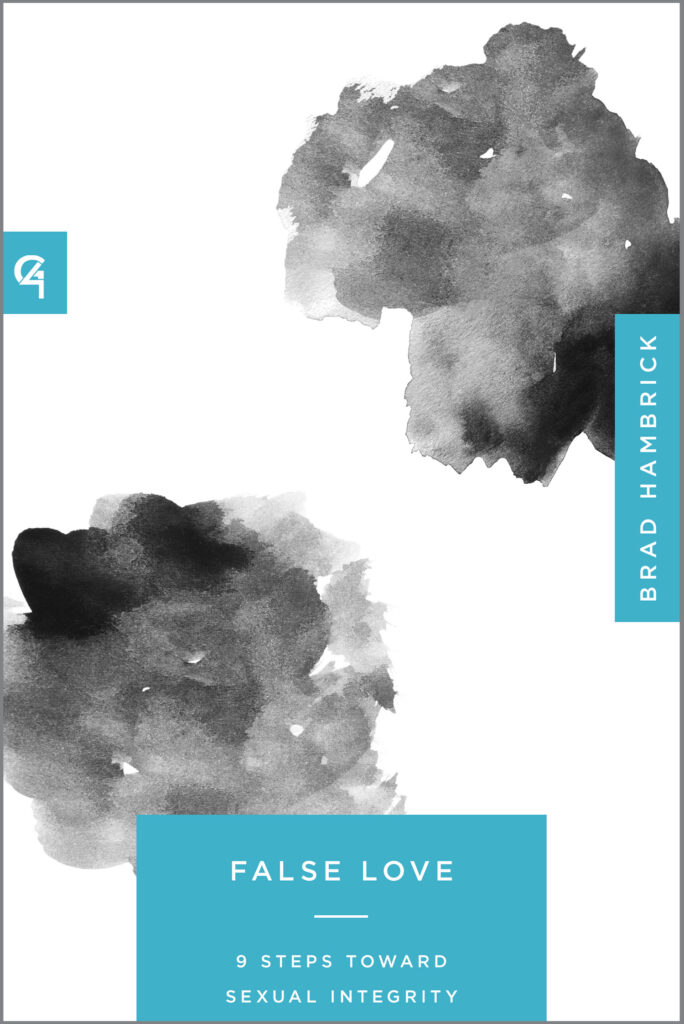I remember working with a military service member wrestling with bondage to sexual sin. As we talked, he eventually said, “You know, this reminds me of the training I received about what to do if I was ever stranded in the ocean off a sunken ship.” I was perplexed and intrigued. Maybe you feel the same as you read his reply. I asked him to explain what he meant.
He described why the temptation to drink saltwater would be appealing. Imagine being thirsty in the beating sun with nothing but the sound of water lapping all around you. It seems logical that a little sip would relieve your thirst. So, why not drink it?
He went on to explain why that’s a bad idea. He explained it at a depth I had never considered. Seawater contains about 3.5 percent salt, far more than the human body can safely process. When consumed, the kidneys must work overtime to excrete the excess salt, requiring more water to produce urine than the seawater provides. This leads to dehydration, as the body pulls water from cells to dilute the salt, causing cells to shrink and impairing vital functions. Symptoms like nausea, confusion, and seizures can quickly follow, potentially leading to organ failure and eventually an exceedingly excruciating death.
Each sip provides temporary relief before making you thirstier because of the salty residue in your mouth. As you get thirstier with each sip, you are tempted to drink more saltwater and intensifying the nausea, confusion, and seizures before you eventually die a tortuous death.
I was convinced. I never wanted to be stranded in the ocean and, if I ever was, I resolved to never drink saltwater. But I could clearly see the parallels my friend was alluding to.
Imagine being lonely, frustrated, or overwhelmed, feeling like just a little bit of companionship, pleasure, or release of physical tension would relieve this burden. You are surrounded by the possibility of what you want. At the click of a button or dial of a phone, you could have the companionship and pleasure you long for.
Like bringing that saltwater to your lips, you give in. The initial response is relief. It worked. Until—ackch, phtsch, eeehhh—the saltiness of guilt, shame, and loneliness set in on your soul like the residue of salt in the back of your throat. As that shame and loneliness intensifies, you feel more desperate for relief and click. The cycle speeds up and the pain intensifies.
My friend had drawn a vivid picture. But he hadn’t just captured the “you shall not eat, for in the day that you eat of it you shall surely die” nature of sin (Genesis 2:17). He had also captured the “everyone who sins is a slave to sin” nature of sin (John 8:34). Sin doesn’t just result in death. Sin creates an ever more tortuous life on the way to that sure demise.
The Trapdoor of Shame
As we talked further, it became clear that for him—and countless others who have fallen into the bondage of sexual sin—shame was the biggest emotional obstacle to embracing the freedom God wanted to provide. Shame is often misunderstood and mistaken as a synonym for guilt. Here’s a breakdown of how they differ:
- Guilt is the sense that we have done something wrong, something worthy of condemnation.
- Shame is a sense that we have done something that makes us unacceptable, worthy of rejection.
- Guilt is judicial.
- Shame is social.
This helps us understand why shame is particularly vicious for sexual sin. Shame says we’re worthy of rejection and declares that we will, therefore, be alone for the rest of our lives. Sexual sin promises an escape from this dilemma. Temptation toward sexual sin seemingly provides a form of companionship that would resolve this inevitable, perpetual loneliness. Like salt water, sexual win masquerades as relief hiding true impact.
Rejection vs. Judgment
For some of us, especially those who value and study theology, we might say, “Wait a minute. Doesn’t the Bible teach that we are worthy of rejection?” No, it teaches that our sin makes us worthy of judgment (Romans 6:23; Hebrews 9:27). The Bible teaches that people reject God (John 12:48), not that God rejects people, but that God will give people over to their rejection of him (Romans 1:24–26).
God’s posture toward people is one of openness to relationship. God invites repentance (Romans 2:4) and promises acceptance in response (I John 1:9). In the parable of the prodigal son, the son returns home rehearsing a speech acknowledging that he deserves to be treated as a slave (Luke 15:19). The father addresses the son’s shame by giving him a ring and robe (Luke 15:22). These are symbols of being embraced as a member of the family (acceptance as the healing response to shame) rather than forgiveness as the response to guilt.
If you read closely, the father does not remove the legal consequences of the younger son’s actions. The older brother still retains rights to all the father currently owned because the younger brother has already squandered his half of the inheritance (Luke 15:31). The father removed the sense of perpetual rejection (i.e., shame) but not the removing consequences (i.e., absolving guilt).
Implications for Freedom from Sexual Sin
So far we’ve had a military training on what not to do if we’re stranded in the ocean and we’ve had a theologically informed Bible study on the difference in God’s response to guilt and shame. What does that mean for our primary subject of sexual sin?
One implication is that we can now understand why group-based counseling is particularly effective for sexual sin and other life struggles where shame is a forefront emotional response. In group-based counseling, the focus of care is not just the content of advice (i.e., the curriculum) but also the social context in which that care is provided.
In group-based counseling, the curriculum provides the teaching and practical application part of care. The curriculum, if Bible-based, explains how to find forgiveness for the guilt of sin and outlines wise steps to take to find freedom from the presence of sin. But the group, by virtue of the consistent presence of the same people who are also being honest about comparable struggles, can provide a compassionate response and can help alleviate the shame of sin. This context increases the effectiveness of the content of counseling.
Here is a second implication: As church leaders, we need to not only be thinking about the most faithful content of care we can provide in our churches, but we also need to be thinking about the context of care that is most effective for that care. When shame is central to a struggle, we should consider groups as a possible (perhaps even preferred) context for the care we try to provide.
False Love
Nothing feels worse than being in bondage and not knowing how to get free. Many people enslaved to pornography or in an adulterous relationship know this feel all too well. Perhaps you’ve been justifying pornography use or infidelity for months or years, but now you are seeing the destruction it has caused in your life and your family’s life. In False Love, counselor Brad Hambrick outlines a 9-step framework for recovery from sexual sin and invites you to experience freedom and true intimacy with God and those you love.







